As I mentioned in last week’s post, being treated as a minister for tax purposes means that you are subject to several unique tax laws that only apply to ministers. The most favorable of these unique ministerial tax laws is the ability of a minister to pay for housing expenses with compensation that is free from federal income tax. Most taxpayers pay for their housing expenses using after-tax dollars. But, ministers can use their housing allowance to pay for their housing costs with money that is not subject to federal income tax. Please remember that even though the housing allowance is free from federal income tax, it is still subject to the self-employment tax (aka Social Security and Medicare) unless the minister has opted out of Social Security.
Here are a few important facts to know about the ministerial housing allowance:
- It is only available to those who meet the definition of a minister under the tax code as outlined in last week’s post,
- It must be approved before it is paid. The approval/designation of the housing allowance should be documented and dated. The tax code does not allow for a retro-active housing allowance designation. The documentation of the housing allowance should be included in the Finance Committee minutes, Personnel Committee minutes, employment contract, annual budget or similar official church document,
- Any amount of housing allowance that the minister does not spend on qualified housing expenses must be claimed as additional wage income on the minister’s personal tax return, and
- The amount of housing expenses the minister can exclude from taxable income is limited to the lesser of the following three items:
- The amount properly designated in advance,
- The amount actually spent, or
- The fair rental value (furnished and all bills paid) of the minister’s house.
Ministers should pay careful attention to the three-part limit. See the examples below of how these limits apply:
| Scenario #1
Low Designation |
Scenario #2
Low Cost |
Scenario #3
Low Rental Value |
|
| Amount Designated | 24,000 | 24,000 | 50,000 |
| Amount Spent | 25,000 | 20,000 | 60,000 |
| Fair Rental Value | 30,000 | 30,000 | 30,000 |
| Amount Excluded from Income * | 24,000 | 20,000 | 30,000 |
| Amount Included in Income | 0 | 4,000 | 20,000 |
From Scenario #1, you can see that the minister could have saved additional taxes if he had designated $25K instead of only $24K. So, if a minister’s designation is too low, he may be missing out on potential tax savings.
From Scenario #2, you can see that the minister is going to have to report $4K of additional wage income on his personal tax return because he spent less than the housing allowance that was designated/paid. If the minister needed new furniture or needed to make home repairs, it may have been a good idea to spend that extra $4K before the end of the year so that it could have avoided taxation.
From Scenario #3, you can see that it is futile to designate a housing allowance in excess of the home’s fair rental value (furnished and all bills paid). Because the amount excludible under the housing allowance can never exceed the fair rental value limiter, designating a housing allowance in excess of the fair rental value will never provide any additional benefit.
Tax Saving Tip: To maximize the potential tax savings, a minister should always designate a housing allowance equal to the fair rental value. There is simply no valid reason to designate anything less than fair rental value. If you designate less than fair rental value and then spend more than the amount designated, you have missed out on some tax savings. Designating an amount greater than fair rental value cannot provide any additional tax savings.
Tax Saving Tip: Pay off your home mortgage after you have paid off all other debts. Your mortgage payment is a qualified housing expense. Your car payment and student loan payments are not qualified housing expenses. So, it makes sense to pay off the debts that cannot be used under the housing allowance first and payoff the home mortgage last. Nevertheless, from both a financial and a spiritual standpoint, I recommend you pay off all of your debts as quickly as possible.
As you can see, it is very important for a minister to know the fair rental value of his home because it is one of the three limiters to the amount that can be excluded from income under the housing allowance. Determining the fair rental value of the home is going to involve some research and some judgement. Resources you can use to determine the fair rental value include:
- Zillow.com,
- Compare your house to houses of similar size/condition that are being leased out in your neighborhood, and
- Consult a real estate professional who is familiar with the residential rental market in your area.
The fair rental value limit includes not only the lease value of the house itself, but also includes furnishings and all bills paid. For example, if the house next to yours is leasing out for $1,800 per month and if your utility bills average $300 per month and the rental value of your furnishings is $400 per month, then your total fair rental value is $2,500 per month ($1,800 + $300 + $400).
Be certain to document the results of your research regarding the fair rental value of your house. In the event that you were to be audited by the IRS, you will likely need documentation of your home’s fair rental value.
If you live in a church provided parsonage, be aware:
- The value of the church provided parsonage must be included in your calculation of the self-employment tax (unless you meet the very stringent requirements to consider the parsonage a non-taxable fringe benefit, see IRS Pub 525 “employer provided lodging” for more details https://www.irs.gov/pub/irs-pdf/p525.pdf)
- You can still receive a housing allowance from the church to cover housing expenses paid from your own funds (e.g. utilities, cleaning supplies, and furnishings).
I hope you find this series enlightening, beneficial and practical. I will strive to help you understand the peculiarities of ministerial taxation and provide practical steps to minimize your tax burden. Feel free to refer my blog to your minister friends who may benefit from this information. If you are an association of churches, feel free to place a link to our blog (https://www.flockbase.com/flockbase-blog/) on your website so that the ministers in your association can easily access it.
Up Next Week: Tax-free reimbursements of ministerial expenses

Jerry Walker is a CPA with more than 28 years of tax and accounting experience. Throughout his career, he has provided tax and accounting services to scores of ministers and churches. He is also a founding partner in FlockBase Software, “The Affordable Church Software Solution.”
DISCLAIMER:
Any accounting, business, or tax advice contained in this communication, is not intended as a thorough, in-depth analysis of specific issues, nor a substitute for a formal opinion, nor is it sufficient to avoid tax-related penalties. This material has been prepared for informational purposes only, and is not intended to provide, and should not be relied on for, tax, legal, or accounting advice. You should consult your own tax, legal, and accounting advisors before engaging in any transaction.
